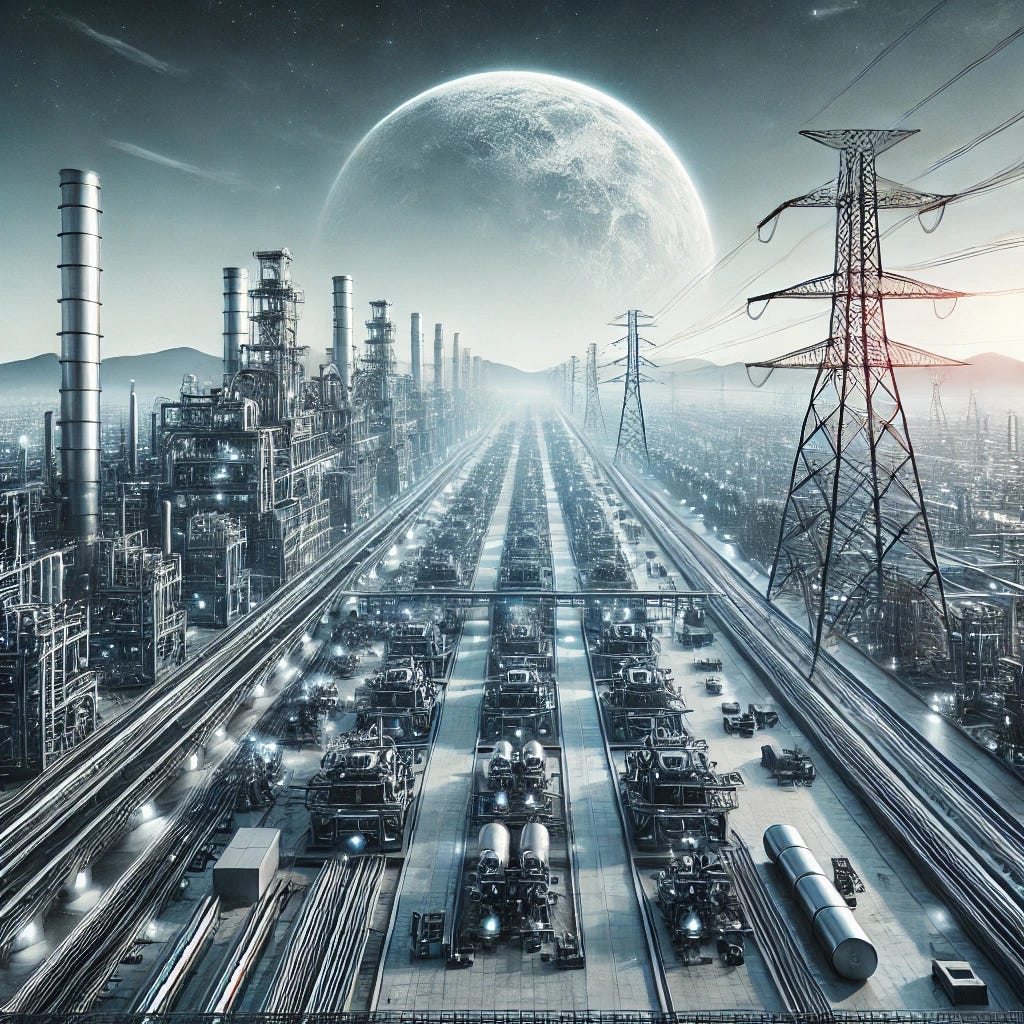The AI Development Paradox:
Power, Innovation, and Accountability
The announcement of The Stargate Project, with its $500 billion investment in AI infrastructure, could be a huge step forward in the development of AI technology, its platforms, and its effectiveness. The potential results from this endeavour could be of great benefit to us all.
But it also raises some very serious questions. The main ones being: Who is going to be in charge? What are they going to do? And how do we make them accountable?
So, why build all these data centers with their massive amounts of GPUs and their huge demands on resources? Surely, the emphasis for future development of the AI infrastructure should be around increased efficiency, not absolute size - especially when one looks at the staggering amount of power that is likely to be consumed.
The response would probably be: if we can build this, we can do more. But more of what?
The Possible Rationale
Peter Thiel, who is a kind of philosopher-king for the Silicon Valley community, argues in his book Zero to One that creative monopolies drive innovation and progress.
"Creative monopolies give customers more choices by adding entirely new categories of abundance to the world. Creative monopolies aren't just good for the rest of society; they're powerful engines for making it better.”
This may be the intellectual support needed for the creation and instigation of The Stargate Project.
But this claim defies even the most basic common-sense observation of what monopolies do and how they work.
Once a company gets big enough to completely dominate its given market, it calcifies around processes and operations. It resorts solely to bottom-line considerations at the expense of everything else. The lack of focus on, the customer, the market, and the potential of new ideas is unsustainable. The business will inevitably be undermined and destroyed by startups with newer ideas, and nimbler execution strategies.
Monopolies are where creativity and innovation go to die. As business entities they are lucky to last from one generation to another.
Without genuine competitors to keep them on their toes, the incentive to develop new ideas and products disappears. They make work for a short time, but history shows that the long-term future is dim.
With the removal of the market as a check and balance to ensure that a company runs itself properly and does its best for the customers, only the government is left to keep an eye on things.
The Vague Promises
AI is extraordinarily capable, and it promises really great things for the future. But the claims issued for the benefits for this construction effort are vague promises that such a move could possibly lead to a cure for cancer. (I sincerely hope it does.) But that isn't a goal or an aim — it is wishful thinking.
A goal is something concrete and positive, a desk on every desktop, a flag on Mars, and so on. A clear objective that unwaveringly orientates every action and resource available to its realisation and achievement.
The Ambition
The Stargate Project could also be nothing more innocent than an exhibion of engineering conceit. The underlying sentiment being: we can do it because we can do it, and it will be super cool if could make it happen. That is justification enough. As a marvel of human competence and capabilities, it could be a wonderful, wonderful thing. But that by itself is not a good enough reason to make it happen.
Aspirations and the fulfillment of ambitions do not take place in a void. In a monolithic project such as this, there may be unintended consequences and repercussions whose negative aspects could forcibly contend with, and possibly outweigh, the positive ones. So we cannot pretend there isn’t a need for caution and some careful thinking.
Concentrated Power
The prime concern is not the consolidation of technology, which may be a good thing (hopefully) or a bad thing, but the consolidation of so much power into the hands of so few people who are essentially unaccountable. This - I register with some level of concern. History shows that highly concentrated power in the hands of the very few, no matter how well meaning, can result in detrimental effects for the rest of us.




A nice read. I for one am not optimistic about the future of western societies while we have unregulated ai.. the inequalities will increase whilst the persuasive technologies that have fragmented western Asabiyyah only become more powerful, more persuasive, and controlled by a small few, as you mentioned.
To become a billionaire I don't think it's too big of a leap to say you must be willing to do immoral things.. to be Uber competitive, narcissistic and even egomaniacal. We have set up a system that relies on philanthropy from these same individuals.. which means the "charitable" donations they give to colleges, governments, etc always come with strings attached.. the colleges will research whatever the donors want them to research, and probably some other stuff for decoration.. this leaves us in a place where egomaniacal billionaires control the direction of humanity.. through "philanthropy", and get the social kudos of being charitable while avoiding taxes and instead using that money to tilt the floor towards their own goals.
Thanks for the read Tom, I hope I've added to the conversation